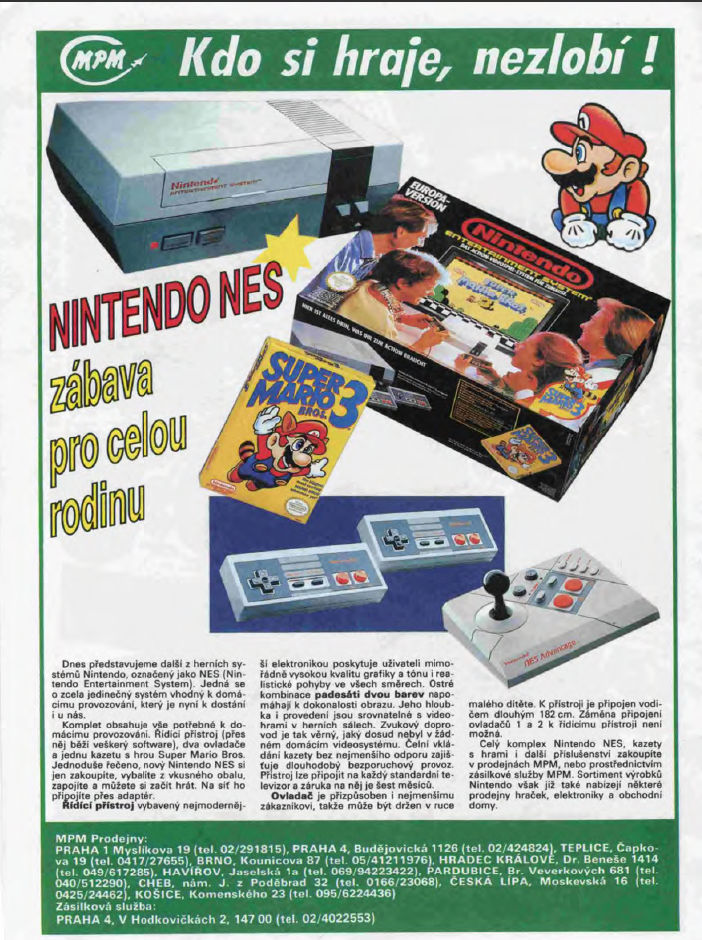Platform: Super Nintendo Entertainment System
Kirby Super Star
Super Punch-Out!!
HyperZone
Uniracers
Ogre Battle: The March of the Black Queen
Tetris Attack
Saturday Night Slam Masters
Mega Man Soccer
Maui Mallard in Cold Shadow
Mario's Early Years! Fun with Letters
Super Smash T.V.
Fido Dido
Super Double Dragon
Super Bomberman
Illusion of Gaia
Mecarobot Golf
Rayman
Waterworld
Earthworm Jim
Mickey Mania: The Timeless Adventures of Mickey Mouse
Inspector Gadget
Daze Before Christmas
Star Trek: The Next Generation - Echoes from the Past
Demon's Crest
Battle Clash
Ballz 3D
Shadowrun
Plok
Robotrek
Equinox
Tetris & Dr. Mario
ClayFighter 2: Judgment Clay
The Legend of Zelda: A Link to the Past
Super Mario FX
Mega Man X3
Wolverine: Adamantium Rage
Virtual Bart
WWF Raw
Super Noah's Ark 3D
Batman
Super Bomberman 2
Castlevania: Dracula X
NBA Jam
Boogerman: A Pick and Flick Adventure
Worms
Super Mario Kart
Might and Magic II: Gates to Another World
Bust-A-Move
Joe & Mac
Zool
Viewing Single Trivia
▲
2
▼
Popular conceptions about Nintendo's release history in Europe claim that their hardware was never released in the former Eastern Bloc until the 21st century. Rather, these countries instead saw the proliferation of various clone consoles called "Famiclones", such as the Dendy (a Taiwanese-built bootleg that achieved widespread popularity in the Commonwealth of Independent States, made up of the ex-republics of the former Soviet Union) and the Pegasus (which became as popular in Poland as the Dendy did in Eastern Europe). However, while Famiclones did indeed dominate the Eastern European gaming market during the 1990s, Nintendo was not only aware of this, but actively attempted to halt the spread of bootlegs in these regions in favor of officially sanctioned products.
In 1994, Nintendo made a deal with Steepler, the Dendy's distributor in Eastern Europe, to permit continued sale of the Dendy in exchange for equal distribution of the Super Nintendo Entertainment System and Game Boy in the Commonwealth of Independent States; official Russian releases of these systems even included Dendy stickers on the packaging to reflect the arrangement. Meanwhile, in various other parts of the former Eastern Bloc, Nintendo made deals with other third-party distributors; among others, the NES, SNES, and Game Boy saw official releases in Poland, Hungary, and the former territories of Yugoslavia and Czechoslovakia during 1993–1994.
In 1994, Nintendo made a deal with Steepler, the Dendy's distributor in Eastern Europe, to permit continued sale of the Dendy in exchange for equal distribution of the Super Nintendo Entertainment System and Game Boy in the Commonwealth of Independent States; official Russian releases of these systems even included Dendy stickers on the packaging to reflect the arrangement. Meanwhile, in various other parts of the former Eastern Bloc, Nintendo made deals with other third-party distributors; among others, the NES, SNES, and Game Boy saw official releases in Poland, Hungary, and the former territories of Yugoslavia and Czechoslovakia during 1993–1994.
Joshua Rogers video about Nintendo in Eastern and Central Europe:
https://www.youtube.com/watch?v=q75Re7deJC0
Russian-language articles about the Nintendo/Steepler deal:
https://web.archive.org/web/20190427025842/https://www.kommersant.ru/doc/94004
https://web.archive.org/web/20240601223552/https://dtf.ru/games/970617-legenda-o-slone-kak-it-kompaniya-steepler-sozdala-dendy-i-osnovala-rossiiskii-konsolnyi-rynok
https://www.youtube.com/watch?v=q75Re7deJC0
Russian-language articles about the Nintendo/Steepler deal:
https://web.archive.org/web/20190427025842/https://www.kommersant.ru/doc/94004
https://web.archive.org/web/20240601223552/https://dtf.ru/games/970617-legenda-o-slone-kak-it-kompaniya-steepler-sozdala-dendy-i-osnovala-rossiiskii-konsolnyi-rynok
Comments (0)
You must be logged in to post comments.
